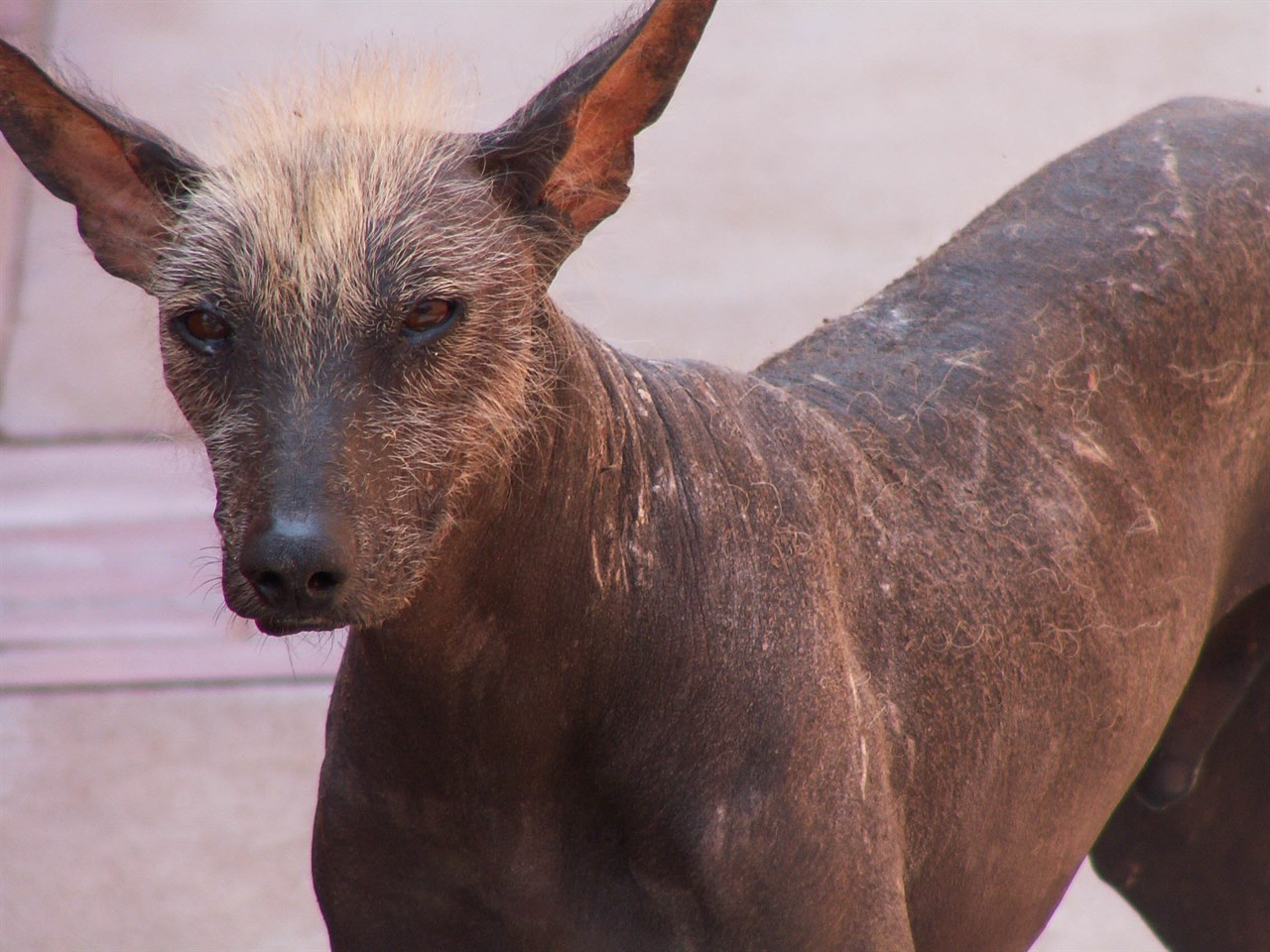Common Health Issues of the Peruvian Hairless Dog

The Peruvian Hairless Dog, also known as the "Perro Sin Pelo del Peru," is generally a healthy breed with a relatively low prevalence of inherited health issues. However, like all dog breeds, they can be susceptible to certain health problems. Understanding these potential issues can help you provide proactive care and ensure your Peruvian Hairless Dog lives a happy and healthy life. Here are some common health issues to be aware of.
Skin Issues
Due to their lack of fur, Peruvian Hairless Dogs are more susceptible to skin problems such as sunburn, dryness, and skin irritations. Protecting their skin from the sun with sunscreen and moisturising it regularly can help prevent these issues.
Dental Problems
Dental hygiene is important for all dog breeds, including Peruvian Hairless Dogs. They can be prone to dental issues like periodontal disease. Regular dental care, including brushing their teeth and providing dental chews or toys, is essential.
Hip Dysplasia
Hip dysplasia is a genetic condition that can affect the hip joints. While not extremely common in Peruvian Hairless Dogs, it's still a potential concern. Responsible breeding practises can help reduce the risk.
Ear Infections
Peruvian Hairless Dogs may be more prone to ear infections due to their unique ear shape. Regular cleaning and maintenance of their ears can help prevent these infections.
Allergies
Some individuals may develop allergies, either to environmental factors or specific foods. Allergic reactions can manifest as skin issues, digestive problems, or respiratory symptoms.
Eye Problems
Eye conditions like glaucoma or cataracts can affect Peruvian Hairless Dogs. Regular eye check-ups can help detect and address these issues early.
Obesity
Obesity can lead to a variety of health problems, including joint issues, diabetes, and heart disease. Proper portion control and regular exercise are essential to prevent obesity.
Luxating Patella
This is a condition where the kneecap (patella) moves out of its normal position, leading to lameness or discomfort. It's not common in Peruvian Hairless Dogs, but it can occur.
Hypothyroidism
Some dogs may develop hypothyroidism, a condition where the thyroid gland doesn't produce enough hormones. It can lead to symptoms like weight gain, lethargy, and skin issues.
Epilepsy
Epileptic seizures can occur in some Peruvian Hairless Dogs. If your dog experiences seizures, consult a veterinarian for diagnosis and management.
Preventive Care
Regular veterinary check-ups, a balanced diet, proper grooming, and maintaining a safe and clean environment can help prevent and address these health issues. Responsible breeding practises, such as genetic testing, can also reduce the risk of hereditary conditions.
It's essential to work closely with a veterinarian who is familiar with the breed to monitor your Peruvian Hairless Dog's health and address any concerns promptly. Early detection and proper care can significantly impact your dog's quality of life and overall longevity.
Peruvian Hairless Dog puppies for sale
- Find Peruvian Hairless Dog puppies for sale in ACT
- Find Peruvian Hairless Dog puppies for sale in NSW
- Find Peruvian Hairless Dog puppies for sale in NT
- Find Peruvian Hairless Dog puppies for sale in QLD
- Find Peruvian Hairless Dog puppies for sale in SA
- Find Peruvian Hairless Dog puppies for sale in TAS
- Find Peruvian Hairless Dog puppies for sale in VIC
- Find Peruvian Hairless Dog puppies for sale in WA